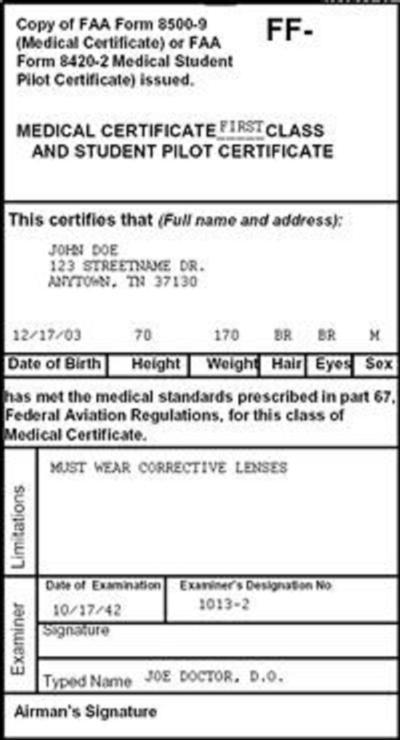Sat, Apr 06, 2024
Unsurprisingly, Stakeholders Support the Initiatives They Author
The Experimental Aviation Association has given the recent report from the FAA's Aviation Rulemaking Committee for Mental Health & Aviation Medical Clearances, an understandable position given the group's presence in the debate process.

The EAA was one of 20 voting members of the Committee, which ultimately recommended that the FAA modify its approach to mental health services for aviators, air traffic controllers, and similarly safety-sensitive personnel. The group often counsels pilots on aeromedical issues through its staff and volunteer Aeromedical Advisory Council, giving it a window into the industry that some may lack. The EAA notes a "growing number of pilots applying for FAA medical certification with mental health diagnoses over the past decade", stating that often such cases "meet with excessive delays when they reach the Office of Aerospace Medicine."

There has been a little headway in getting regulatory momentum on easing up on such delays, but the always safety-minded FAA has been leery of issuing sweeping changes without really looking at the issue from as many angles as it can. Sure, mental health issues are more common than ever before, but the infamous German wings incident looms large in the back of anyone's mind as they sign off on a potential headache down the road, and doctors are never too keen on taking on more liability.
As such the Committee's recommendations were pretty understandable, opting for a push for widespread acceptance of non-pharmacological interventions in the mental health side of flight. Therapy, when taken alone and not combined with new mood-altering medications, is specifically listed as something that should be free and clear of required disclosure. In similar fashion, they recommend a 'non-punitive pathway for pilots and controllers with previously undisclosed diagnoses to disclose to the FAA", in addition to a revisitation of the FAA's disqualification of 'properly treated' ADHD for pilot certificates. Additional advice centers around reduced use of stressful testing for certification, and minimized wait times for 'uncomplicated' and stable mental health diagnoses that are being sufficiently treated.
"I am immensely proud of what we were able to accomplish on this ARC," said Tom Charpentier, EAA government relations director and representative to the committee. "These recommendations, if implemented, will represent enormous progress in an area of policy that has a reputation of being slow to change. I am excited about these recommendations not only as a committee member, but as a pilot."
More News
Also: New Lakeland Fly-in!, Gleim's DPE, MOSAIC! Nearly three-quarters of a century in the making, EAA is excited about the future… especially with the potential of a MOSAIC>[...]
Estimated (EST) -When used in NOTAMs “EST” is a contraction that is used by the issuing authority only when the condition is expected to return to service prior to the >[...]
Aero Linx: Regional Airline Association (RAA) Regional airlines provide critical links connecting communities throughout North America to the national and international air transpo>[...]
The Airplane Broke Up In Flight And Descended To The Ground. The Debris Path Extended For About 1,435 Ft. Analysis: The pilot, who was the owner and builder of the experimental, am>[...]
From 2015 (YouTube version): History Comes Alive Thanks to A Magnificent CAF Effort The story of the Douglas C-47 named, “That’s all Brother,” is fascinating from>[...]
 Airborne 07.21.25: Nighthawk!, Hartzell Expands, Deltahawk 350HP!
Airborne 07.21.25: Nighthawk!, Hartzell Expands, Deltahawk 350HP! ANN's Daily Aero-Term (07.27.25): Estimated (EST)
ANN's Daily Aero-Term (07.27.25): Estimated (EST) ANN's Daily Aero-Linx (07.27.25)
ANN's Daily Aero-Linx (07.27.25) NTSB Final Report: Luce Buttercup
NTSB Final Report: Luce Buttercup Classic Aero-TV: 'That's All Brother'-Restoring a True Piece of Military History
Classic Aero-TV: 'That's All Brother'-Restoring a True Piece of Military History




